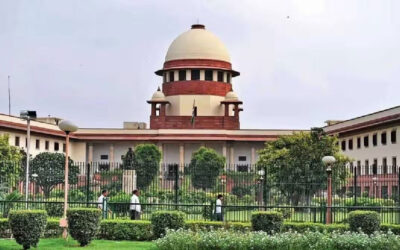Environment and Human development go hand in hand. It is impossible to say which is more important but one thing is for sure- If our development is not sustainable, then it means we will come to suffer at some point. It may not be us, but the future generations will undoubtedly do.
Sustainable development refers to human developments that meet our current needs, without undermining the nature’s ability to provide for the generations to come. The term sustainable development acts as the unifying principle for accomplishing our development goals, while still ensuring we don’t exhaust natural resources for coming generations.
Sustainability is a political choice, not a technical one. It’s not a question of whether we can be sustainable, but whether we choose to be. For every act that we do, there must be a better way to make the things we want, a way that doesn’t spoil the sky, or the rain or the land and it should be our endeavor to find that way. Our biggest challenge in this new century is to take an idea that seems abstract – SUSTAINABLE DEVELOPMENT – and turn it into a reality for all the people the world over, for no matter how complex the global problems may seem to be, we cannot forget that it is we ourselves who have given rise to them and they cannot be beyond our power to resolve.
In today’s era, the 21st century, the current situation calls for an immediate attention towards a way of development that meets the growing needs of today’s generation without compromising the needs of the future generations. Merely observing earth hour by switching off all lights foe an hour will not be sufficient to solve this problem! The alarming rate of depleting non-renewable resources are a warning for the humankind to act promptly.
To build a plan of action that is sustainable, majorly three pillars are to be considered-
- the economy,
- the society, and
- the environment.
The three pillars can be well supported by a plan of action that if put in chains can do wonders. The three steps in order to further support these three pillars that are to be taken necessarily are-
- reduce,
- reuse, and
Using the three R’s in their hierarchy can protect the environment and conserve the resources thereby producing the minimum amount of waste. Let me elucidate on the three R’s and their possible contribution :
REDUCE : Waste Management has become a serious issue worldwide. With the continuing increase in population, the term waste management and its old policies have become redundant in today’s times. A report by the Press Information Bureau in 2016 put India’s annual waste generation at 62 million tonnes, “with an average annual growth rate of 4 per cent”. On a daily basis, the country produces more than 1.50 lakh metric tonnes (MT) of solid waste, according to a 2019 India Today report. An immediate need has arisen to educate the households of our country that the unmindful waste such as napkins, diapers, cleaning agents and mosquito repellents are categorized under Domestic Hazardous waste and are the most problematic area of waste management being non degradable. However, the mere segregation of waste at the initial stage that includes three stream segregation that is organic or biodegradable waste, also called Kitchen Waste, Dry waste such as plastic, paper, metal and wood and the domestic hazardous waste has sorted things for the management at many levels.
REUSE: Our country has been using things as nifty alternatively since ages and this has been a boon to us ever since. We find old jam jars converted to store pickles, old reusable milk bottles, every piece of clothing is reused for an indefinite purpose in our households thereby making the best possible use of everything. The western culture brings with itself a sense of fast fashion and non-reuse of resources. On one hand, the youth of India talk about alarming environmental concerns that include limited use of resources, waste management, etc. and on the other hand, following fast fashion is a very contrary way of leading a lifestyle. No matter how recycled the cloth is, the ever changing fashion will make it destined to get dumped in a bin. We as responsible citizens need to be mindful of what we do on a daily basis.
RECYCLE: India extracts resources three times more than the average rate globally. A huge amount of waste produced by industries needs to be recycled and put to use. The draft of policy namely National Resource Efficiency Policy 2019 proposed by the environment ministry outlines a three-year resource management action plan across seven sectors which contribute to about 25 percent of India’s income. It proposes a series of measures for better waste management and reduced landfill use, better management of construction waste, electronic waste and waste from other growing sectors. This can possible an answer to the problems related to waste produced from these units. India’s environment ministry has proposed a higher focus on recycling in the automobile sector, among other sectors, with a target of 75 percent to 90 percent recycling rate for vehicles, depending on the year of manufacture.
After we have reduced, reused and recycled (including composting) as much as possible, the rubbish that is left behind can be used to generate heat and power. This is known as ‘recovery’. Different types of rubbish are best suited to different types of treatments which can in turn create different types of energy, from biogas to electricity.
The Indian Judiciary has time and again focused on the application of the concept of sustainable development. The right to a clean environment has been made a part of our fundamental rights by including it within the ambit of the right to life. The judiciary has also acknowledged that Environment and development are two sides of the same coin. Any one of these cannot be sacrificed for the other. On contrary, both are equally important for our better future. Without Healthy environment life becomes critical and similarly development is need of modern era, thus the responsibility lies on both, the citizens and the Judiciary to ensure that the development that happens today is not at the cost of the sustainability of the environment for the future. This has further resulted in the newly evolved concept of- “Jurisprudence of Masses”.
The role of Supreme Court in resolving environmental disputes has contributed immensely to the evolution of environmental jurisprudence and it’s principles in India. Clean and healthy environment is the basic need of any human being which can be ensured with ecological balance which has been made possible by judicial activism and the foresight of the Indian Courts- specially the Supreme Court and various High Courts. Various judicial pronouncements have given new jurisprudence and dimension to environmental protection by adopting the doctrine of- Sustainable Development.
In the case of Indian Council for environmental legal action versus union of India 2011, the POLLUTER PAYS PRINCIPLE was applied for the first time in India wherein the court tried to define the polluter pays principle and its scope. Justice Dalveer Bhandari and Justice H.L. Datta said,- “The polluter pays principle demands that the financial cost of preventing or remedying the damage caused by pollution should lie with the undertaking which caused the pollution or produced the good which caused the pollution.”
This would inculcate a sense of responsibility and mindfulness in the creator. In the case of Vellore Citizen’s Welfare Forum vs Union of India 1996, the Supreme Court declared that the polluter pays principle is part of the environmental jurisprudence of India. The court further held that the polluting tanneries were liable to pay for the past pollution generated by them. Recently in the case of Arjun Gopal & Others Vs. Union of India & Others, Hon’ble Supreme Court declared to Suspend all such licenses as permit sale of fireworks, wholesale and retail within the territory of NCR.
In Addition to the Supreme Court and the various High Courts to deal with these cases of Environment with caution of high degree, a major role is also being played by the recently established National Green Tribunals with its benches all over India. The need of the hour is however, to understand that more than legislative force and judicial mandates, it is ultimately an increased level of public awareness, regular inspection and Environmental Education that will bring far reaching results. It is the fundamental and moral duty of each and every citizen of the country to make their best efforts to protect the Environment and it is only then will we be able to achieve our goal i.e. to secure a pollution free developed country for our generations to come.


